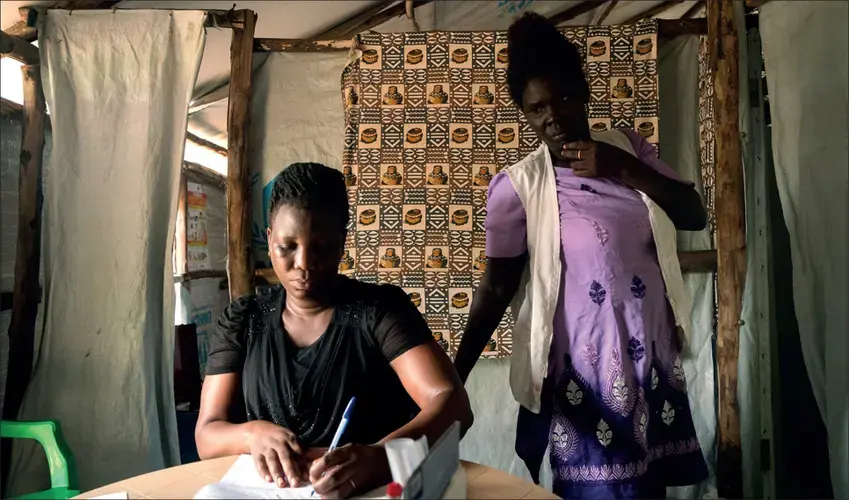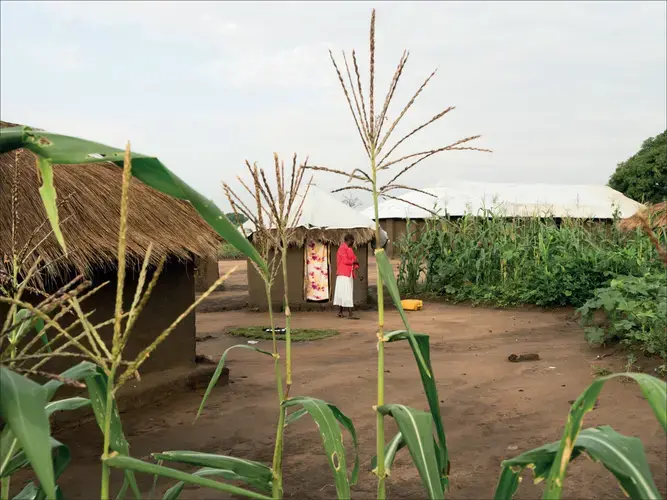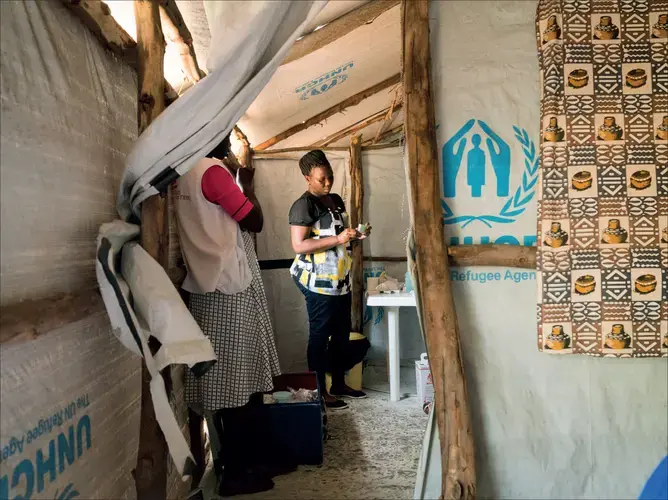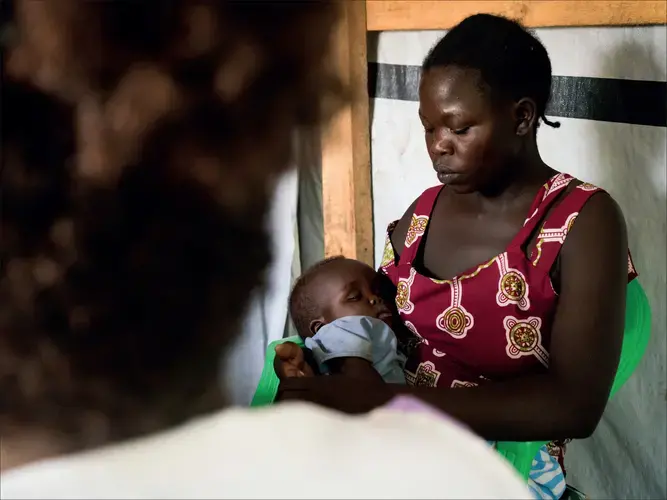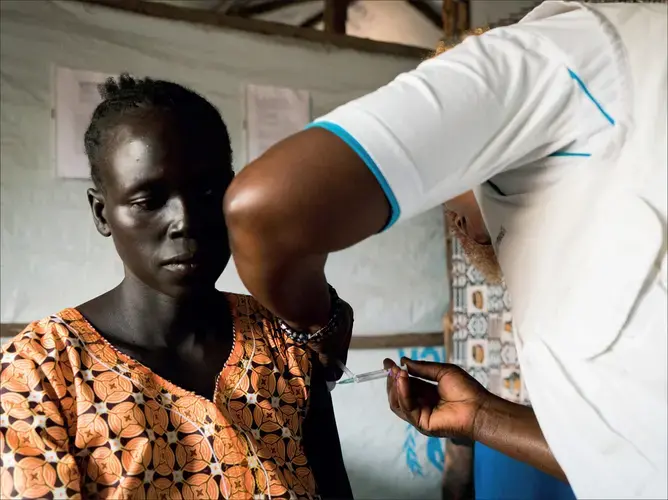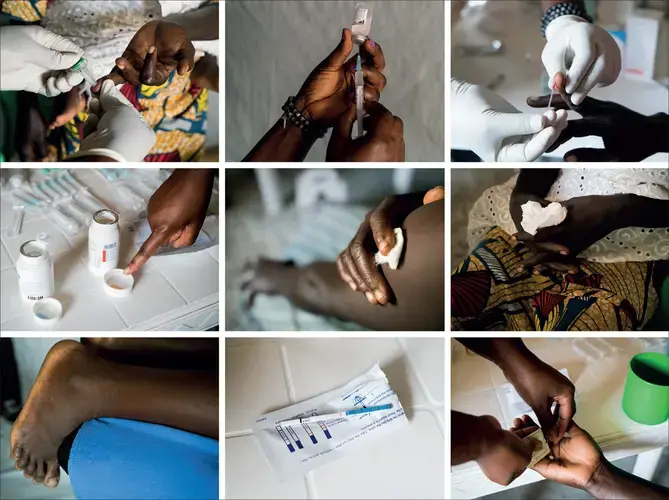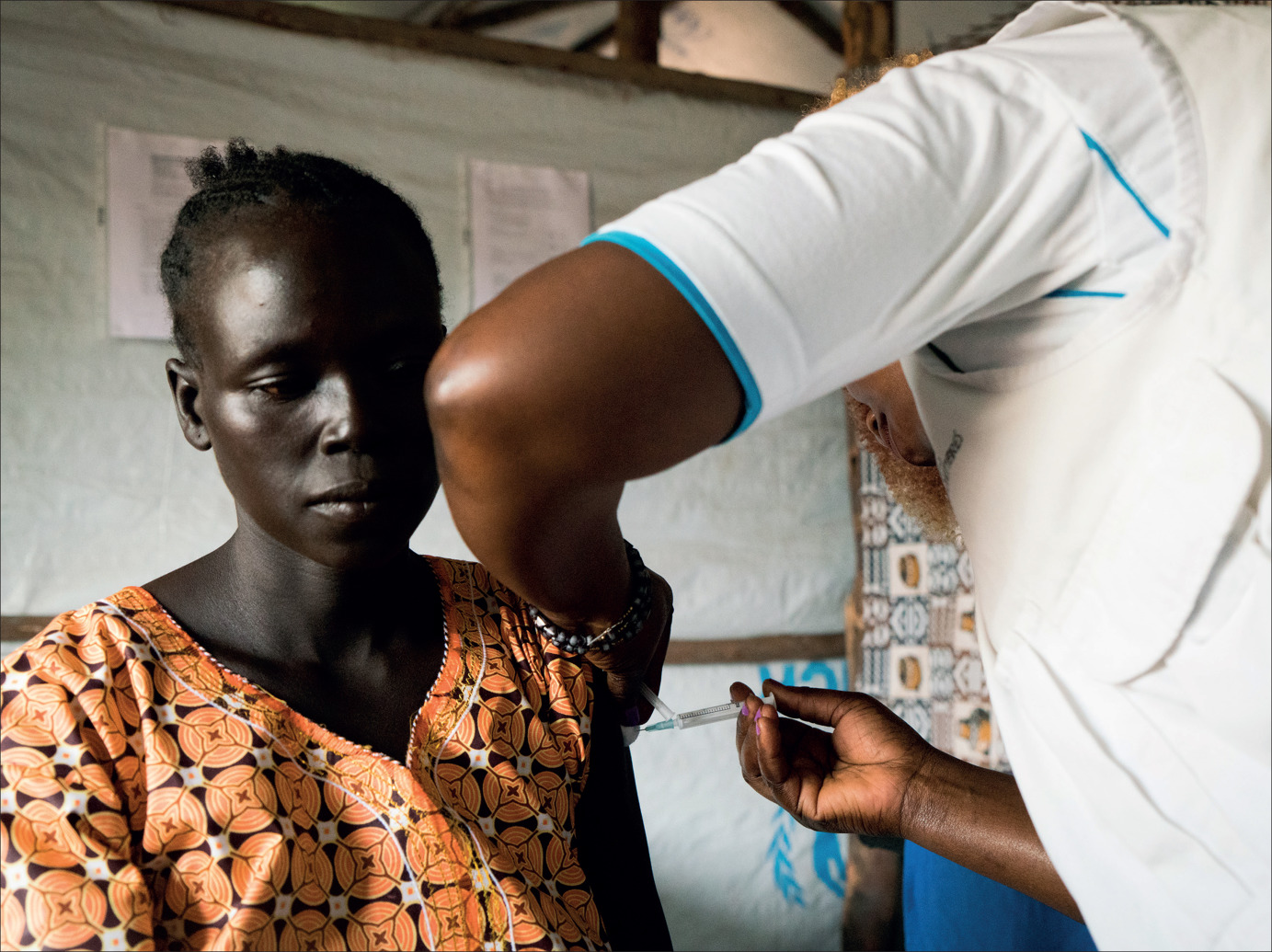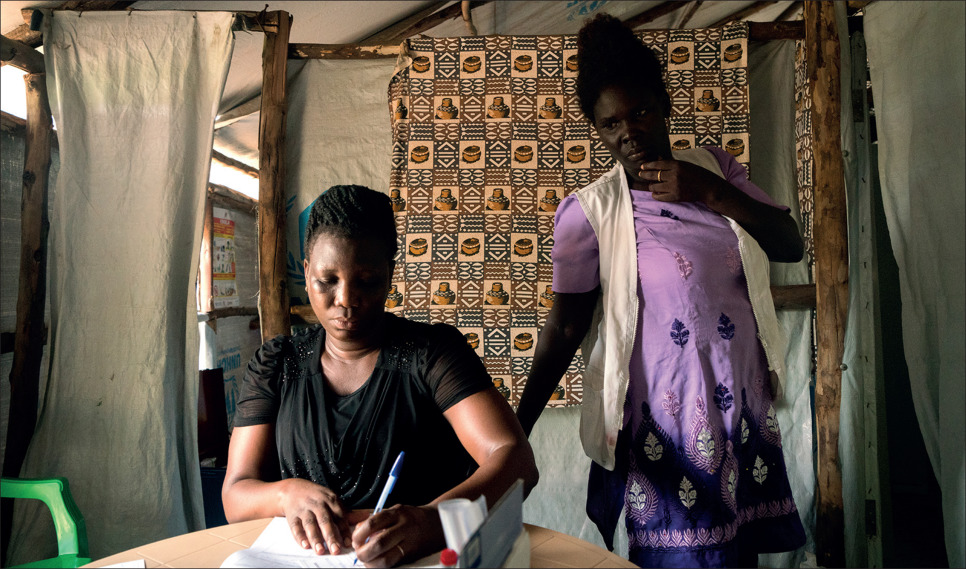
The Médecins Sans Frontières (MSF) sexual violence and mental health clinic in the Omugo settlement in the Rhino camp extension looks similar to the other refugee camp structures in northern Uganda, which are home to hundreds of thousands of South Sudanese refugees. Since the war in South Sudan erupted in 2013, a steady flow of people, including many women and children, have made the harrowing trek from their homes and across the border into Uganda.
I took these photographs in the Bidi Bidi and Omugo refugee settlements and the MSF clinic at the Omugo Rhino camp extension in June and July, 2019. The staff at the MSF sexual violence and mental health clinic provide the space for South Sudanese women to come forward with their stories of sexual violence and help them to receive health care. Susan Oyera, a midwife at the clinic, hears the women's accounts of their journeys. “I don't think that I have talked to any women who haven't been assaulted”, she said, looking down at a stack of patients' records. Working with a team that includes midwives, interpreters, psychologists, psychiatric nurses, psychiatric clinical officers, social workers, and community health educators, Susan said that she sees between three to eight patients each day. She has worked there since the clinic opened in October, 2018.
Some of the women who go to the clinic were raped when soldiers or rebels attacked their villages in South Sudan, some as they made their way to Uganda, and others had been assaulted in the camp. The women don't usually come to the clinic to tell these stories but to check on their health. “From the time of the assault, I started having pains. I felt that I should come to the facility and wanted to know my HIV status”, one woman said. Susan reassures each woman. “I don't blame anyone because anyone can be assaulted by anyone at any time”, she said. “Did any of this happen to you? Have you experienced anything like this?”, she continued. Susan tells each patient about the services at the clinic. She speaks slowly so that everything can be translated and understood. Susan talks about sexual and gender-based violence and explains that psychologists are available for counselling. She also gives details about immunisations, post-exposure prophylaxis, pregnancy tests, and tests and treatments for sexually transmitted infections and HIV. Susan always emphasises that to give the appropriate care, she needs to understand the patients' stories.
